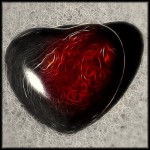 Few of us relate to our wound like it’s a form of genius in any sense of the word. We relate to it like we have to get rid of it. I have a friend whose father left her mother, and sisters when she was five years old. She has incredible wounding around this event. The wound continually makes her feel invaluable. In order to be valued by the men in her life, she’s become both incredibly smart and incredibly empathic. Now that’s the genius that lives in her. She has an incredible gift with people.
Few of us relate to our wound like it’s a form of genius in any sense of the word. We relate to it like we have to get rid of it. I have a friend whose father left her mother, and sisters when she was five years old. She has incredible wounding around this event. The wound continually makes her feel invaluable. In order to be valued by the men in her life, she’s become both incredibly smart and incredibly empathic. Now that’s the genius that lives in her. She has an incredible gift with people.
But up until recently, she’s been relating to the wounding of feeling unworthy due to her father’s abandonment as something she loathes. It’s an ache in her being that she’s been looking to get rid of. One way she tried to eliminate the wound is by seeking out men to tell her that she’s smart, beautiful, and needed. And each time a man complimented her, she wondered, “If they knew how screwed up I really am, would they say those nice things?” In each man, she was looking and hoping for a reflection that will heal the wound of abandonment. Recently, she's begun to recognize that no man or men will ever completely heal that wound. The real healing of that wound is an inside job.
Stop Scratching Even Though It Itches
Her whole orientation has been outer-focused. And because her orientation is outward in that she seeks men to fill the void, she keeps getting re-wounded. Each time she is brought face-to-face with the realization that a man won’t heal her, she is horribly disappointed not only with the man, but, especially with herself. So on top of being angry with the man, she’s angrier with herself for getting herself into more drama. And then it becomes a never-ending cycle of wounding, hurt, more wounding, and then more drama. This is what makes it addictive behavior.
At the base of all addictions is what Pema Chodron, a renowned Buddhist teacher, calls an itch that we long to scratch. Chodron likens our wounds to scabies. When you have scabies, and you see your doctor, the prescription is not to scratch it even though it itches, that as you continue to scratch, not only does it fester, but it spreads, too. As my friend continues to seek validation from a man, her rash keeps spreading. Like all itchiness, we sometimes don’t even notice that it’s itchy until we’ve scratched at it for quite some time. So in order to emerge from the wound or the rash, we first need to notice that we are scratching and to stop scratching. It is the scratching that is the habit pattern. And the more we scratch the more the wound grows. And what’s required is an inward gazing, a capacity for introspection.
We scratch the wound when we buy the storyline of our pain rather than meeting the energy of it. Behind the story is just a mood, tone or energy. Where we usually go is to the storyline instead of the energy behind the storyline. And so we tend to create drama out in the world in order to resolve the storyline. However, resolving the storyline doesn’t actually resolve or relieve the sense of wounding.
Inquiry
Spend 10 minutes with a pen and paper, noting all the places you've created drama in your life as a result of your wound. Look to:
- relationships that you avoid or cling to
- people and situations you won't be with
- missed opportunities
- addictions or habits that effect your health and sense of wellbeing
- ways that you avoid change
- belief systems that keep you stuck
- crises you constantly create
- relationships that take from you rather than nurture you
- avoidance of intimate, loving connections
Transforming the Sacred Wound Series
This is one part in a nine-part series that explores ways to heal and transform your sacred wound. Be sure to check out the other posts!